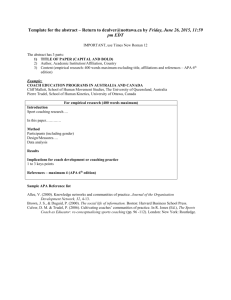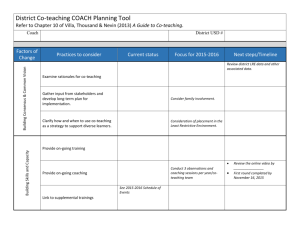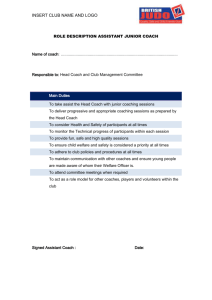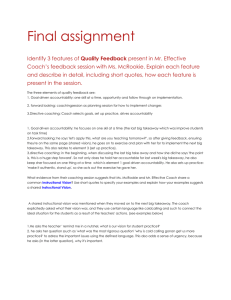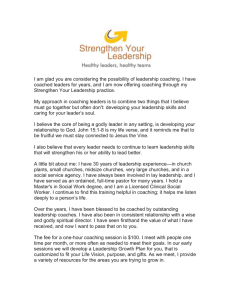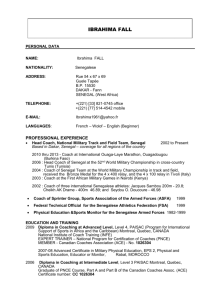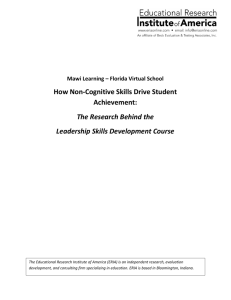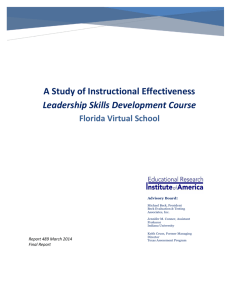Reading Discussion Groups – November 20,2013 ISA Coach
advertisement
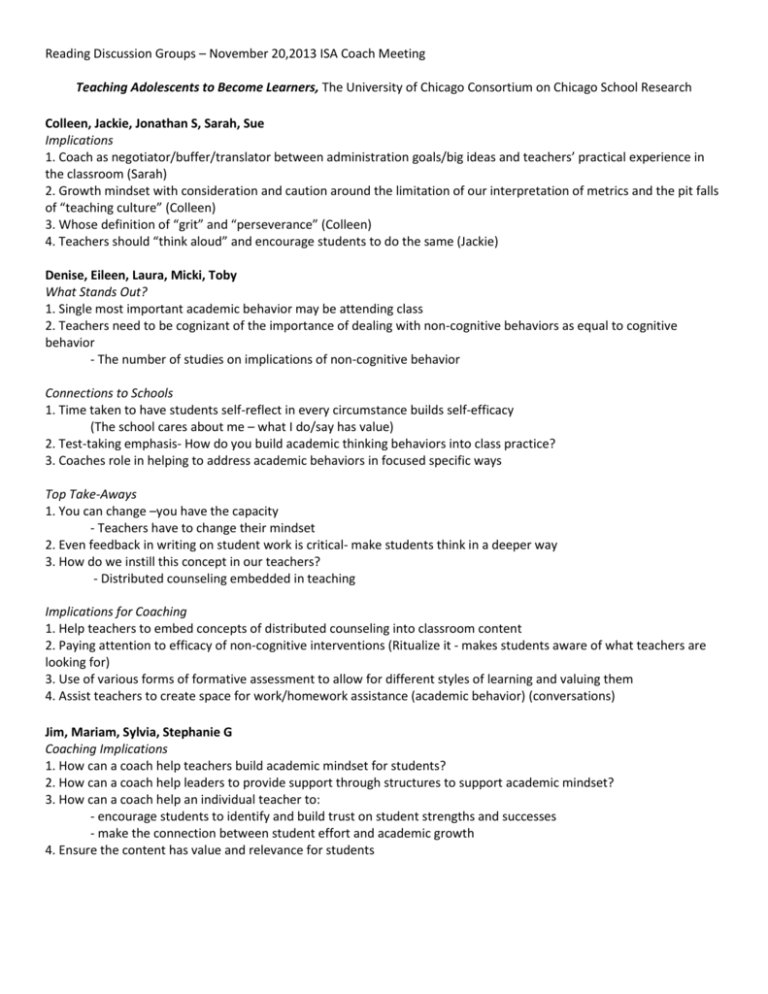
Reading Discussion Groups – November 20,2013 ISA Coach Meeting Teaching Adolescents to Become Learners, The University of Chicago Consortium on Chicago School Research Colleen, Jackie, Jonathan S, Sarah, Sue Implications 1. Coach as negotiator/buffer/translator between administration goals/big ideas and teachers’ practical experience in the classroom (Sarah) 2. Growth mindset with consideration and caution around the limitation of our interpretation of metrics and the pit falls of “teaching culture” (Colleen) 3. Whose definition of “grit” and “perseverance” (Colleen) 4. Teachers should “think aloud” and encourage students to do the same (Jackie) Denise, Eileen, Laura, Micki, Toby What Stands Out? 1. Single most important academic behavior may be attending class 2. Teachers need to be cognizant of the importance of dealing with non-cognitive behaviors as equal to cognitive behavior - The number of studies on implications of non-cognitive behavior Connections to Schools 1. Time taken to have students self-reflect in every circumstance builds self-efficacy (The school cares about me – what I do/say has value) 2. Test-taking emphasis- How do you build academic thinking behaviors into class practice? 3. Coaches role in helping to address academic behaviors in focused specific ways Top Take-Aways 1. You can change –you have the capacity - Teachers have to change their mindset 2. Even feedback in writing on student work is critical- make students think in a deeper way 3. How do we instill this concept in our teachers? - Distributed counseling embedded in teaching Implications for Coaching 1. Help teachers to embed concepts of distributed counseling into classroom content 2. Paying attention to efficacy of non-cognitive interventions (Ritualize it - makes students aware of what teachers are looking for) 3. Use of various forms of formative assessment to allow for different styles of learning and valuing them 4. Assist teachers to create space for work/homework assistance (academic behavior) (conversations) Jim, Mariam, Sylvia, Stephanie G Coaching Implications 1. How can a coach help teachers build academic mindset for students? 2. How can a coach help leaders to provide support through structures to support academic mindset? 3. How can a coach help an individual teacher to: - encourage students to identify and build trust on student strengths and successes - make the connection between student effort and academic growth 4. Ensure the content has value and relevance for students Reading Discussion Groups – November 20,2013 ISA Coach Meeting Slow Ideas, Atul Gawande – New Yorker Annals of Medicine Bob, Elena, Mardi, Mary, Michael, Jonathan K Implications for Coaching 1. Questions a coach needs to address a. What is the best way to move a person? b. What are the entry points for an individual? c. What will make a teacher make the leap? 2. We need to see change along a continuum 3. If change isn’t sustained, how to remedy? 4. Change isn’t a linear process 5. Connection to topic is significant for student engagement and consequent success 6. Rapport [with] students is a very significant factor in achieving success 7. There are so many variables involved in what will make teachers feel successful 8. For teachers to be successful students must feel respected/appreciated/loved Andrew, Bella, Carolyn, Kate, Nate, Stefanie M What implications are there for coaching at our schools? 1. Relationships a. Check-ins (a la pharm. rep) b. Building relationships with different groups with some competing agendas c. Building community 2. Making the invisible visible a. Developing values and culture to answer the question: How do values manifest and why do we want these to? 3. Small wins 4. Does values cause action or does action change values? John T, Keri, Lance, Phyllis, Steve, Terry Implications for Coaching 1. Transparent communication to build trust 2. Awareness of early adapters and using them for change 3. Keep eye on incentives – not penalties - Go beyond compliance – rewards to intrinsic motivation to move forward 4. Use research to make positive change (brain, technology) 5. How to create a professional learning community that is both internally productive and has potential to move beyond the building


